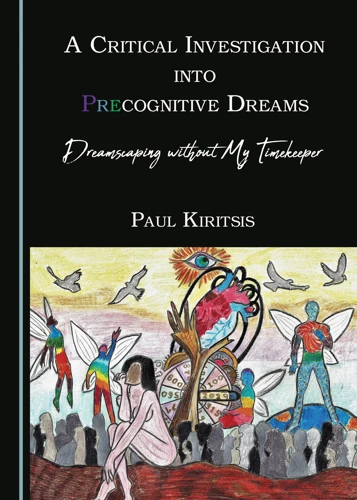The world of dreams is a mysterious and fascinating realm that has captivated human beings for centuries. While some dreams may seem mundane or nonsensical, others can offer glimpses into possible events or futures. These premonition dreams, as they are often called, have intrigued scientists, researchers, and ordinary individuals alike. How can certain dreams foretell future events? What is the science behind them? Are they simply coincidences or something more? In this article, we will explore the different types of dreams, delve into scientific explanations of premonition dreams, examine examples of them, look at research studies on the topic, and discuss the debate surrounding their validity.
Types of Dreams
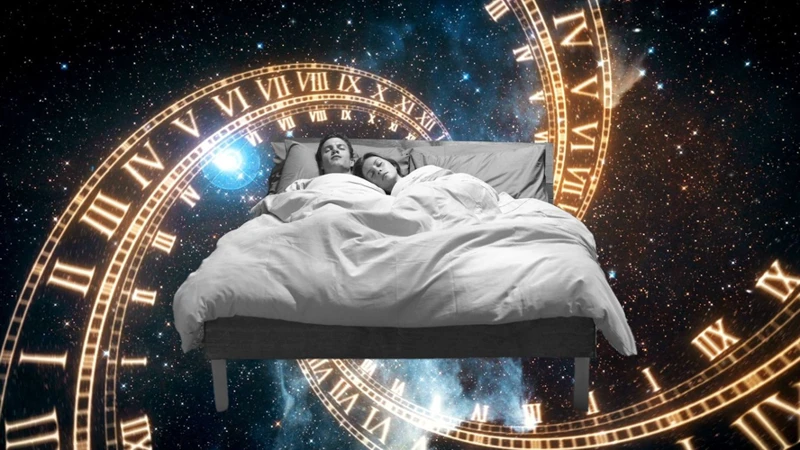
Dreams are a fascinating and complex phenomenon that has puzzled scientists and philosophers for centuries. From the fantastical to the mundane, dreams can offer a window into our innermost thoughts and emotions. Dreams can be filled with symbolism and hidden meanings, and can also contain premonitions or glimpses of the future. In this section, we will explore the different types of dreams that people experience and how they can provide insight into our subconscious selves.
What are premonition dreams?
Premonition dreams are a type of dreams that are believed to foretell an event or situation that may happen in the future. They are also referred to as prophetic or precognitive dreams. These dreams often feel exceptionally vivid and come with a strong feeling of certitude. They can also be unsettling or disturbing, making it hard to forget or shrug off their significance.
Below are some key characteristics of premonition dreams:
- They involve a clear and detailed vision of a future event or circumstance
- They often come with an overwhelming sense of heightened emotions, such as fear, anxiety, or excitement.
- They may include elements that are literal or symbolic, making interpretation somewhat tricky.
- Premonition dreams can happen to anyone, they are not limited to a specific culture, age or gender.
- Some people may experience recurring premonition dreams, while others may have only one in their lifetime.
It’s worth noting that not all dreams that predict the future are premonition dreams. Some people have dreams that reveal a future feature because those events are already set to happen based on their actions, surroundings or societal trends. Conversely, premonition dreams are thought to predict events that are not yet set in stone, giving the dreamer a chance to alter or modify the outcome. Despite the popularity of premonition dreams, their scientific validity remains in question. In the next section, we’ll explore the science behind premonition dreams, including recent research findings and discussions around the interpretation of dreams.
Other types of dreams
While premonition dreams have gained popularity in recent years, they are not the only types of dreams that people experience. Here are some other common types of dreams:
- Nightmares: These are dreams that invoke fear, anxiety, or terror. Nightmares can be caused by a range of things, from medications to life experiences to mental health conditions.
- Lucid dreams: In a lucid dream, the dreamer is aware that they are dreaming and can control the content of the dream. Some people are able to practice lucid dreaming as a way to overcome fears or improve skills.
- Recurring dreams: These are dreams that happen repeatedly over time, often with the same or similar content. Recurring dreams can be a way for the brain to process unresolved emotions or experiences.
- Healing dreams: Some people report having dreams that provide insight or healing for physical or emotional issues. While there is limited scientific evidence to support the idea of healing dreams, some people find them to be comforting and helpful.
It’s important to note that dream experiences can vary greatly from person to person, and some people may not experience certain types of dreams at all. Additionally, the meanings and interpretations of dreams can be highly subjective and dependent on personal experiences and beliefs.
The Science of Premonition Dreams
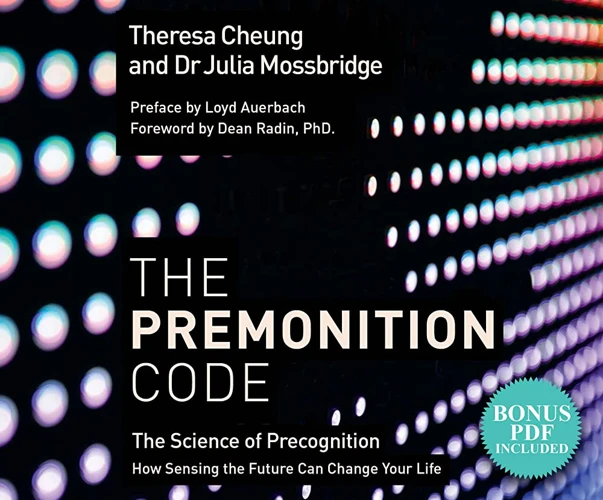
As humans, we have always been intrigued by the mysterious workings of our mind, especially when it comes to the realm of dreaming. One of the most fascinating phenomena in this field is premonition dreams – dreams that seem to foretell future events. While the idea of such dreams may seem far-fetched, there is a growing body of scientific research that seeks to explain the science behind them. In this section, we will delve into the theories and findings that attempt to unravel the mysteries of premonition dreams.
The Role of the Brain
One of the primary factors influencing premonition dreams is the role of the brain. Let’s take a closer look at how the brain functions during the dream state and the potential impact it has on dream content:
- The Activation-Synthesis Model: This model, proposed by Harvard psychiatrists John Allan Hobson and Robert McCarley, suggests that dreams are simply the byproduct of random electrical impulses in the brain during REM (rapid eye movement) sleep. The brain attempts to create a story or narrative to make sense of these impulses. This could explain the seemingly nonsensical or bizarre nature of some dreams, including premonition dreams.
- The Continual-Activation Theory: This theory, proposed by Jie Zhang at the University of Texas at Austin, suggests that the brain’s ongoing processing of information during sleep can extend to calculation, planning and problem-solving. In other words, some dreams may contain information relevant to our waking lives, including premonitions.
- The Anticipation Theory: Research by Patrick McNamara, a neurologist at Boston University School of Medicine, suggests that the brain’s frontal lobe, which controls planning and decision making, is more active during REM sleep than during wakefulness. This could indicate that dreams, including premonition dreams, may be the result of the brain’s attempt to anticipate future events.
The role of the brain in premonition dreams remains an area of ongoing research and debate. While some theories suggest that they may be the result of random electrical impulses, others propose that they may be the product of the brain’s ongoing processing of information or predictive capabilities. Regardless of the explanation, the brain undoubtedly plays a critical role in shaping the content of our dreams, premonitory or otherwise.
Psychological and Emotional States
Our psychological and emotional states are closely linked to the occurrence of premonition dreams. Stress, anxiety, and trauma are common triggers that can lead to such dreams. When we are under a great deal of stress, our minds may try to process the possible outcomes of future events. Similarly, anxiety can leave us with a sense of dread or impending doom, leading to dreams of negative events that may come to pass. Trauma, on the other hand, can cause our brains to replay past events or simulate future scenarios so we can better prepare for similar situations in the future.
Additionally, positive emotions such as happiness and excitement can also trigger premonition dreams. In these cases, our brains may be trying to give us a glimpse into a joyful event that is yet to come. Some people believe that by focusing on positive thoughts and emotions before bed, they can increase the likelihood of having premonition dreams that foretell good things.
It is worth noting that not all premonition dreams are tied to specific emotions or psychological states. Some may simply be the brain’s attempt to cope with the vast amount of information it processes on a daily basis, sorting and organizing it in a way that may give us a sense of predictive power. Regardless of the cause, premonition dreams can be a powerful tool for gaining insight into the future, and the more we know about them, the better equipped we can be to interpret them.
Paranormal and Spiritual Explanations
There are those who believe that premonition dreams are not just a product of the brain’s function, but have a deeper spiritual or paranormal explanation. These beliefs are often rooted in religious or cultural traditions, and can vary greatly. Here are some examples of these paranormal and spiritual explanations for premonition dreams:
1. Psychic Abilities: Some believe that certain individuals possess psychic abilities that allow them to perceive events before they occur. This might include details about a future event, or even the emotional state of a person they have never met. This explanation is often associated with the belief in clairvoyance or extrasensory perception (ESP).
2. Ancestral Knowledge: Some cultures believe that premonition dreams are a means of accessing ancestral knowledge that has been passed down through generations. These dreams might reveal information about one’s family history or can provide insight into future events.
3. Spirits or Angels: Some people believe that premonition dreams are the result of communication with spirits or angels. In these beliefs, these entities provide guidance or deliver messages to the dreamer. These dreams are often viewed as a form of divine intervention.
4. Premonitions as a sign: Others believe that premonition dreams are a sign or warning from a higher power. In this belief, the dreamer is being alerted to a future event or a possible danger. These dreams serve as a cue to take necessary precautions or to change one’s course of action to avoid foreseeable consequences.
It is important to note that while many people believe in these paranormal or spiritual explanations, there is no scientific evidence to support them. Nonetheless, these beliefs often provide comfort and meaning to those who experience premonition dreams.
Examples of Premonition Dreams
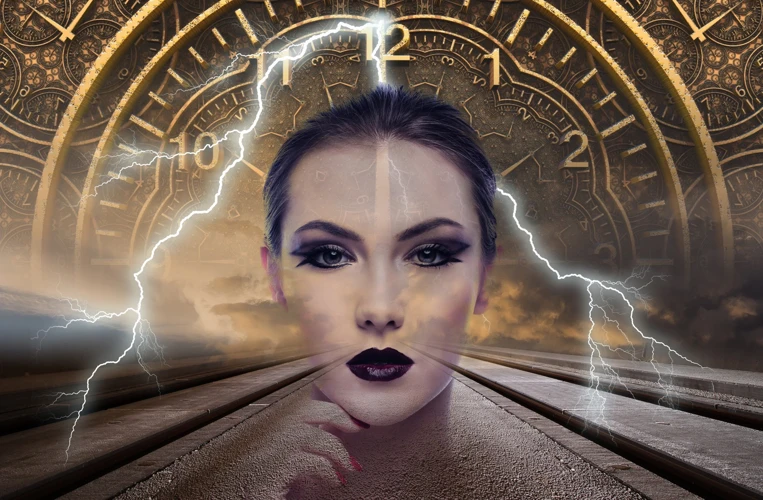
Premonition dreams have been reported throughout history and have provided people with advance warnings of both positive and negative events. One famous example of a premonition dream is Abraham Lincoln’s dream of his own assassination, which he had just days before it actually occurred.
In his dream, Lincoln saw himself walking past a room where he saw his own body lying in state. He then asked a soldier guarding the body who had died, to which the soldier replied, “The President. He was killed by an assassin.” Just a few days later, Lincoln was in fact assassinated by John Wilkes Booth.
Another example of a premonition dream is that of British singer-songwriter, Sting. In his dream, he saw the exact melody and lyrics of his hit song, “Fields of Gold.” He woke up and quickly wrote down everything he had dreamed, which became the basis for the song.
Similarly, a woman named Pam Reynolds allegedly had a premonition dream that accurately predicted her own death during a complicated brain surgery. She dreamed that she was floating above her body and could see everything that was happening in the operating room. When she awoke from the surgery, she recounted the specific details she had “witnessed” in her dream, which were later verified by members of the surgical team.
These are just a few examples of premonition dreams that have been reported. While some may dismiss them as mere coincidence or imagination, others firmly believe in their accuracy and value as a means of predicting the future.
Research Studies on Premonition Dreams
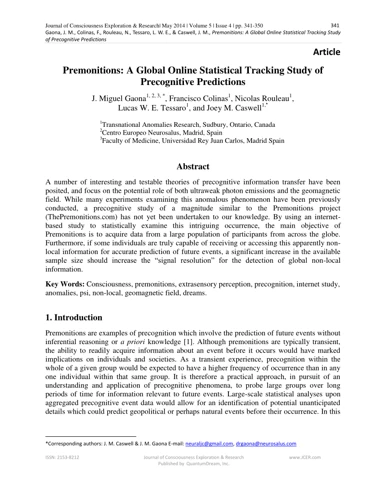
Over the years, there have been numerous research studies conducted on premonition dreams, seeking to explore the science behind these intriguing experiences. While some of these studies have yielded significant findings, others have failed to produce concrete evidence to support the existence of premonition dreams.
One notable study conducted in 2016 by a team of researchers at the University of Lincoln in the UK examined the dreams of 61 participants over a period of six weeks. The participants were asked to record their dreams in a journal and note any unusual or significant events they experienced the following day. The results indicated that 43% of the participants had reported at least one instance of a premonition dream during the study period.
Another study, conducted by Dr. Caroline Watt, a parapsychologist at Edinburgh University, focused on the relationship between premonitions and anxiety. The study involved surveys of more than 400 participants, and results showed that individuals who experienced premonitions were more likely to suffer from anxiety than those who did not.
Despite these studies, there are still many skeptics who doubt the scientific validity of premonition dreams. Some argue that the results of these studies could be attributed to chance or random coincidence, while others suggest that people may have a natural tendency to remember their premonition dreams more vividly than other types of dreams, leading to biased reporting.
Despite these debates, the research studies on premonition dreams provide valuable insights into the phenomenon and offer a basis for further exploration and investigation.
Interpreting Premonition Dreams

One of the biggest mysteries surrounding premonition dreams is how to interpret them. As these dreams can often contain cryptic messages or symbols, deciphering their true meaning can be a challenging task. However, there are several methods and techniques that can be used to unravel the hidden messages of these dreams. In this section, we will explore some of the ways in which premonition dreams can be interpreted, including the use of dream journals, symbolism and interpretation, and seeking professional help.
Keeping a Dream Journal
One effective way to interpret and understand premonition dreams is to keep a dream journal. This journal can help you track recurring themes, symbols, and emotions that appear in your dreams. Here are some tips for keeping a dream journal:
- Dedicate a specific notebook or document: Keep all your dream notes and interpretations in one place to make it easy to refer back to them in the future.
- Write down your dreams as soon as you wake up: This ensures that you capture as many details as possible while they’re still fresh in your mind.
- Include emotions: Record how you felt during the dream and upon waking up, as intense emotions can often provide important insights.
- Look for symbols and patterns: Take note of any recurring symbols or patterns in your dreams, as they may hold significance in your waking life.
- Reflect and interpret: After recording your dreams, take some time to reflect and interpret the meanings behind them. Consider what they could be trying to tell you about your life, relationships, or future events.
Incorporating a dream journal into your routine can be a helpful tool for interpreting premonition dreams and gaining a deeper understanding of yourself and your subconscious.
Symbolism and Interpretation
When it comes to interpreting premonition dreams, symbolism plays a crucial role. Dreams are filled with symbols that represent different things, and understanding these symbols can help people make sense of their dreams. Here are a few tips for interpreting premonition dreams through symbolism:
1. Look for common symbols
Certain symbols tend to appear frequently in dreams, and recognizing these symbols can help with interpretation. For example, a snake might represent danger or betrayal, while a butterfly might represent transformation or renewal.
2. Consider personal associations
Symbolism in dreams can also be highly personal. For example, a dream about a dog might represent loyalty and friendship for one person, but fear and trauma for another. By considering personal associations with symbols, individuals can gain a deeper understanding of their dreams.
3. Pay attention to emotions
The emotions experienced within a dream can also offer insight into its meaning. For example, a dream about falling might represent a feeling of insecurity or a fear of failure. By paying attention to the emotions felt within a dream, individuals can better understand its symbolism and significance.
4. Seek professional help
Interpreting dreams, particularly premonition dreams, can be challenging. In cases where dream symbolism is particularly complex or intense, seeking the help of a professional psychologist or dream interpreter may be beneficial. These experts have training and experience in interpreting dreams, and can offer valuable insights and guidance.
Seeking Professional Help
One way to interpret premonition dreams is through seeking professional help. Some people may feel overwhelmed or confused by their premonition dreams and may benefit from the guidance of a professional. This could include a therapist, counselor, or psychic medium.
Therapists and counselors can help individuals explore the emotional and psychological aspects of their premonition dreams. They can assist in identifying any underlying fears, anxieties or emotional conflicts that may be influencing the dreams. Through this exploration, they can help individuals gain a deeper understanding of themselves and their subconscious.
Psychic mediums can provide a different perspective on premonition dreams. They may be able to offer insights into the spiritual or metaphysical realm and help individuals connect with loved ones who have passed away or receive messages from the Universe.
It is important to note that not all professionals are created equal and it is essential to find someone who is reputable and trustworthy. Researching and reading reviews can help individuals find a professional who is a good fit for them and will provide them with the guidance they need. Seeking professional help can be a valuable tool for those seeking to understand and interpret their premonition dreams more deeply.
| Pros | Cons |
|---|---|
|
|
The Debate Around Premonition Dreams
As with any topic that touches on the paranormal or spiritual realm, the debate around premonition dreams is closely tied to personal beliefs and experiences. Some individuals firmly believe in their ability to predict future events through their dreams, while others remain sceptical and attribute such experiences to coincidence or a trick of the mind. But what does science say about premonition dreams? Let’s delve deeper into this phenomenon and explore the different perspectives surrounding it.
Sceptics versus Believers
The debate about premonition dreams revolves around skeptics and believers. Some people are skeptical about the existence of premonition dreams and attribute them to mere coincidence or subconscious thoughts. On the other hand, believers consider premonition dreams to be a real phenomenon and often attribute them to supernatural or spiritual causes.
Arguments of Sceptics:
- Skeptics argue that premonition dreams are simply coincidental and occur randomly. They point out that people have many dreams every night, and there is bound to be some overlap with real-life events.
- Others argue that premonition dreams are a result of the brain’s natural ability to recognize patterns and make predictions based on past experiences. They suggest that dreams are a way for the brain to process and prepare for possible future scenarios.
- Skeptics also doubt the validity of anecdotal evidence and personal experiences, arguing that they can be easily influenced by bias and memory distortion.
Arguments of Believers:
- Believers argue that premonition dreams are too specific and accurate to be mere coincidence. They point out that some people have dreams that accurately predict future events that they could not have known about consciously.
- Others believe that premonition dreams are caused by paranormal or spiritual factors, such as precognition or telepathy. They suggest that dreams are a way for the subconscious mind to tap into external information sources beyond the five senses.
- Believers often cite personal experiences and anecdotal evidence as proof of premonition dreams, claiming that they have had too many accurate premonitions to be mere coincidence.
Despite the ongoing debate, research on premonition dreams is increasing, and more studies are being conducted to understand the science behind them. The future of research in this area remains uncertain, but as technology and knowledge continue to advance, it is possible that we may someday have a better understanding of the mysterious nature of premonition dreams.
The Future of Research
As with any topic that involves the unexplained, there is still a lot of uncertainty when it comes to premonition dreams. While some research studies have been conducted, there is still much to be learned about the nature of these types of dreams.
Here are some possible directions for future research:
- Exploring the connection between premonition dreams and other psychic phenomena
- Investigating the role of neurotransmitters in premonition dreams
- Using brain imaging techniques to better understand the brain activity involved in these types of dreams
- Conducting more longitudinal studies that track individuals who report premonition dreams over time
- Comparing data from different cultural groups to better understand the cultural factors that may influence belief in premonition dreams
- Conducting more case studies of individuals who report having premonition dreams to better understand the personal and psychological factors that may be involved
While there will likely always be debate about the reality of premonition dreams, continued research can only help us to better understand this intriguing phenomenon.
Conclusion
In conclusion, the science behind premonition dreams remains a mystery. While some people have reported experiencing premonitions in their dreams, there is no concrete scientific explanation for this phenomenon. The role of the brain, our psychological and emotional states, and paranormal or spiritual explanations have all been explored, but there is still much that is unknown.
However, this does not mean that premonitions in dreams should be disregarded altogether. It is important to keep an open mind and to pay attention to the messages that our dreams may be trying to convey to us. Keeping a dream journal, interpreting symbols, and seeking professional help can also aid in understanding the meanings of our dreams.
The debate around premonition dreams continues, with skeptics and believers both offering their own perspectives. While further research may shed more light on this topic, it is up to each individual to decide whether or not they believe in the reality of premonition dreams.
Overall, dreams are a crucial part of our mental and emotional well-being, and understanding their significance can lead to greater self-awareness and personal growth. Whether or not we believe in the science behind premonition dreams, paying attention to our dreams can provide powerful insights into our innermost thoughts and feelings.
Frequently Asked Questions
What is the difference between premonition dreams and other types of dreams?
Premonition dreams are characterized by a feeling of foreknowledge or prophetic insight, while other dreams may simply reflect subconscious processes or past experiences.
Are premonition dreams real?
The reality of premonition dreams is a matter of debate, with some people reporting vivid and accurate premonitions while others remain skeptical.
How do premonition dreams work?
The exact mechanisms behind premonition dreams remain unclear, but they may be related to intuitive, unconscious processing and the interconnectedness of all things.
Can premonition dreams be used to predict the future?
While some people have reported accurate premonitions of future events, the validity and reliability of premonition dreams as a method of predicting the future is still in question.
What role does the brain play in premonition dreams?
The brain is thought to play a key role in processing information related to premonition dreams, with intuitive and unconscious processes working in tandem with conscious awareness.
Do psychological and emotional states affect premonition dreams?
Psychological and emotional states may affect the occurrence and interpretation of premonition dreams, particularly those related to anxiety, stress, and trauma.
Are there any paranormal or spiritual explanations for premonition dreams?
Some people believe that premonition dreams are the result of spiritual or psychic connections, while others attribute them to divine intervention or other supernatural forces.
How can dream journaling help with interpreting premonition dreams?
Keeping a dream journal can help individuals gain insight into the symbolic and metaphorical meanings of their dreams, particularly premonition dreams that may be difficult to understand.
Is seeking professional help necessary for interpreting premonition dreams?
Seeking professional help may be helpful for individuals who struggle to understand or cope with the intensity of their premonition dreams, particularly those related to traumatic experiences.
What are some potential implications of research on premonition dreams?
Research on premonition dreams may have implications for the fields of psychology, neuroscience, and spirituality, particularly in terms of understanding the interconnectedness of the mind, body, and universe.

